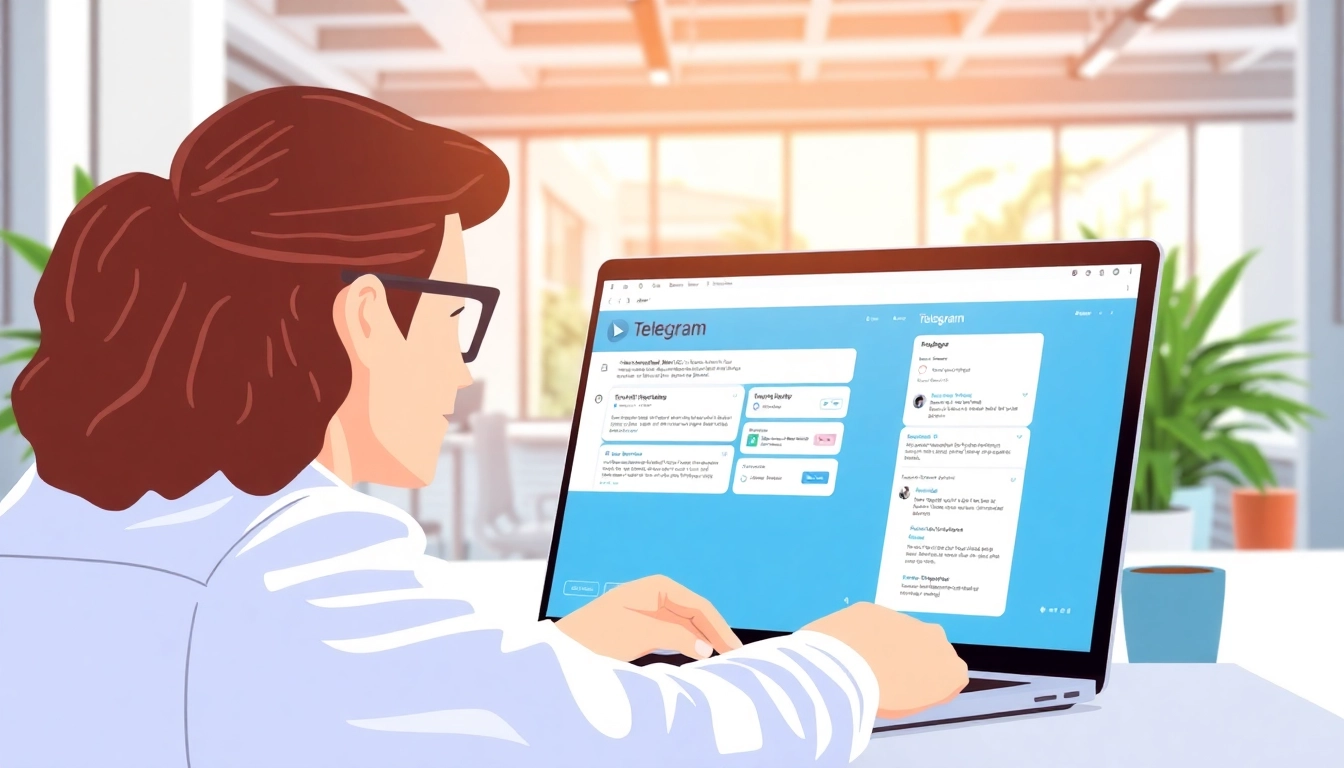Understanding the Role of Informatics in Modern Context
Overview of Informatics and Its Importance
Informatics is a multidisciplinary field that bridges the gap between data and meaningful information. It encompasses the study, design, and use of information systems to support and enhance human activities. As data generation accelerates across industries—from healthcare and finance to education and science—the role of informatics has become increasingly crucial. Understanding how to effectively manage, analyze, and interpret data is vital for informed decision-making and strategic planning. Knowledge derived from informatics not only facilitates improvements in operations but also aids in the creation of innovative solutions that can transform organizations.
Key Areas Where Informatics is Applied
Informatics finds applications across a diverse range of fields. Key areas include:
- Healthcare: Informatics systems streamline patient data management, improve diagnostic accuracy, and enhance patient care through electronic health records (EHRs) and telemedicine platforms.
- Business: Businesses leverage informatics for data analytics, customer relationship management (CRM), and supply chain optimization, leading to better operational efficiencies.
- Education: In educational settings, informatics supports personalized learning experiences, efficient administration, and extensive data analyses for student performance enhancement.
- Environmental Science: Informatics plays a role in managing ecological data and conducting advanced analytics for sustainability initiatives and climate action strategies.
Trends in Informatics and Technology Integration
As technology evolves, informatics is experiencing transformative trends, notably:
- Artificial Intelligence (AI): AI algorithms are increasingly being integrated into informatics systems to facilitate predictive analytics, automate mundane tasks, and provide insights with higher accuracy.
- Data Visualization: The rise of big data has fueled the need for sophisticated data visualization tools that allow stakeholders to interpret vast datasets intuitively.
- Cloud Computing: Organizations are migrating to cloud-based systems for enhanced scalability, flexibility, and collaboration across departments.
- Interoperability: As different systems converge, the need for interoperable solutions that allow seamless data sharing across platforms is gaining importance.
Benefits of Following www.informaticsview.com
Access to Reliable Information
By engaging with www.informaticsview.com, readers gain access to a plethora of reliable and up-to-date information on informatics. This resource includes research papers, articles, and curated content essential for professionals seeking knowledge or looking to stay updated with the latest trends in the field.
Engagement with Industry Experts
Interacting with content and community forums on InformaticsView allows individuals to connect with industry experts. These engagements foster knowledge sharing and discussions about best practices, offering fresh perspectives to informatics enthusiasts.
Real-World Applications and Case Studies
InformaticsView provides valuable real-world case studies illustrating successful implementations of informatics systems across various sectors. These case studies offer insights into practical applications, demonstrating how organizations tackle challenges and leverage data for improvement.
Strategies for Leveraging Informatics in Business
Improving Decision-Making Processes
In today’s fast-paced business environment, leveraging informatics can significantly enhance decision-making processes. Organizations can utilize data analytics to produce actionable insights, allowing decision-makers to evaluate options and predict outcomes expertly. By systematically analyzing historical performance data, businesses can develop informed predictions about future scenarios, providing a competitive edge.
Enhancing Customer Experience
Informatics tools are indispensable for understanding customer behavior. Businesses can analyze consumer data to personalize interactions and deliver tailored experiences. Proactive customer support and personalized marketing strategies, grounded in data insights, result in heightened customer satisfaction and loyalty.
Utilizing Data for Competitive Advantage
Utilizing informatics in business enables organizations to harness data for strategic advantage. Through advanced analytics, businesses can identify market trends, anticipate shifts in consumer interests, and optimize resource allocation. This capability allows organizations to confidently make strategic moves ahead of competitors, fostering innovation and driving growth.
Challenges in Informatics and Solutions
Common Challenges Faced by Organizations
Despite its numerous benefits, implementing informatics can present challenges for organizations. Common issues include:
- Data Overload: Many organizations struggle with an overwhelming amount of data that can obscure actionable insights.
- Integration Issues: Companies often face difficulties integrating new informatics systems with existing infrastructure.
- Data Security: With the increasing focus on data collection, organizations must navigate privacy laws and ensure robust data protection mechanisms.
Best Practices to Overcome Obstacles
To address these challenges, organizations should adopt best practices such as:
- Data Governance: Implementing a clear data governance strategy helps manage data quality and accessibility while ensuring compliance with legal standards.
- Employee Training: Regular training for staff on the handling and interpretation of data promotes informed decision-making throughout the organization.
- Choosing the Right Tools: Selecting tools that fit specific business needs and integrate well with existing systems can mitigate implementation issues during transformation.
Tools and Technologies for Effective Management
Organizations can enhance their informatics strategies by utilizing a variety of tools and technologies, including:
- Business Intelligence (BI) Software: BI tools enable users to visualize data trends and make data-driven decisions with ease.
- Data Management Platforms: These platforms allow organizations to centralize data collection, storage, and sharing securely and efficiently.
- Collaboration Tools: Technology such as project management apps fosters teamwork and communication among departments, enhancing the use of informatics.
Future of Informatics: What to Expect
Emerging Technologies in Informatics
The future of informatics is promising, as emerging technologies continue to shape the field. Innovations in artificial intelligence (AI), machine learning, and blockchain are predicted to revolutionize data management and security. For instance, machine learning algorithms will refine predictive analytics, allowing organizations to make even more accurate forecasts based on past behavior.
Predicted Shifts in Industry Practices
As informatics evolves, organizations will increasingly adopt a data-centric approach to all operations. Predictive analytics will become standard practice, influencing everything from marketing strategies to inventory management. The emphasis will shift from merely collecting data to effectively leveraging insights derived from that data.
Preparing for Changes in the Digital Landscape
Organizations need to prepare for the upcoming changes in the digital landscape by embracing agility. This means being receptive to technological enhancements and structured sufficiently to adapt to rapid changes in the industry. Regular assessments of technological investments, methodologies, and best practices in informatics will be vital in remaining competitive and responsive to market demands.


